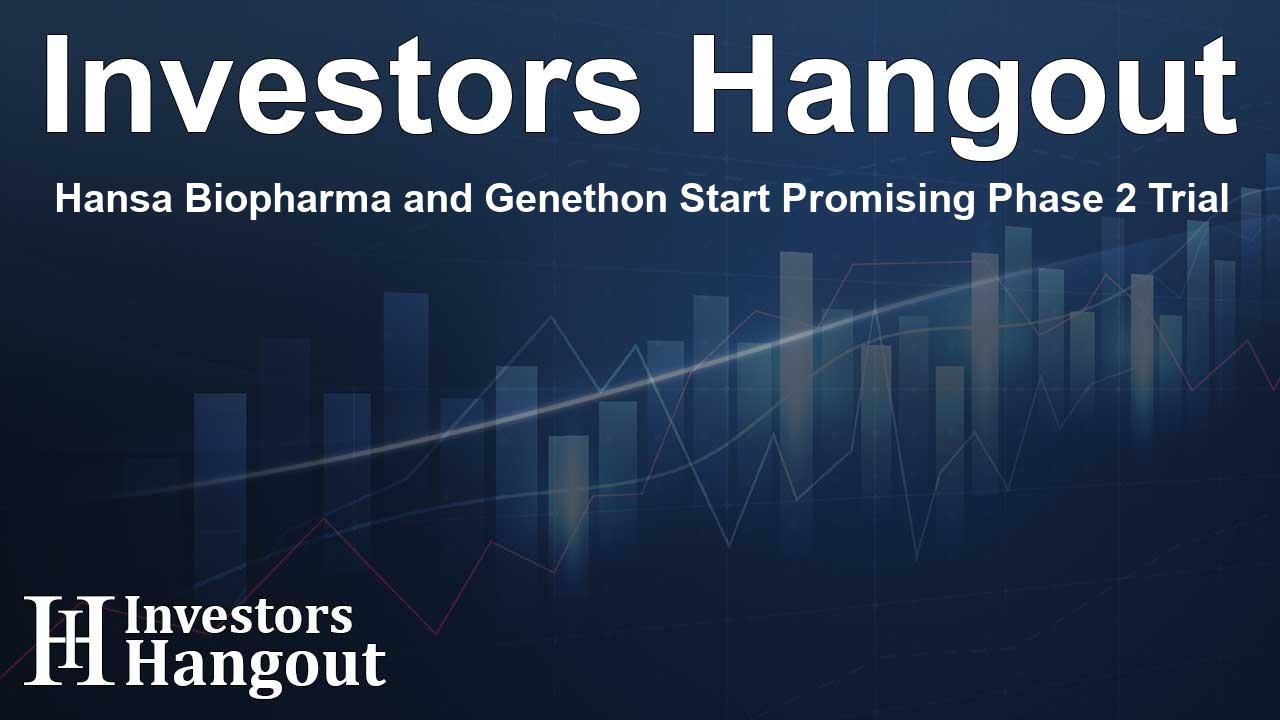Hansa Biopharma and Genethon Start Promising Phase 2 Trial

Innovative Collaboration in Gene Therapy
Hansa Biopharma and Genethon have joined forces to launch a Phase 2 clinical trial, marking an exciting development for patients suffering from severe Crigler-Najjar syndrome. Crigler-Najjar syndrome is a rare genetic liver disorder that leads to dangerously high bilirubin levels in the blood, potentially causing severe neurological issues if not addressed promptly. The recent trial, known as GNT-018-IDES, focuses on patients with pre-existing antibodies against adeno-associated virus (AAV) vectors.
Understanding the Phase 2 Trial
This Phase 2 trial aims to evaluate the safety and efficacy of Genethon's innovative gene therapy GNT-0003, administered alongside Hansa's unique enzyme therapy, imlifidase. The study will involve three participants aged 18 and older who have Crigler-Najjar syndrome and significant anti-AAV8 antibodies. These patients typically require phototherapy to manage their condition. The trial seeks to determine whether pre-treatment with imlifidase can enable these individuals to benefit from gene therapy, emphasizing the importance of this collaboration in overcoming the barriers posed by existing antibodies.
Benefits of Imlifidase
Imlifidase is a first-in-class therapy that acts quickly, cleaving IgG antibodies to boost treatment outcomes for patients who may otherwise be excluded from potentially life-saving gene therapies. The enzyme's rapid action allows for a re-evaluation of renal transplant possibilities and opens doors to enhance treatment pathways for genetic disorders. As research progresses, it underscores the potential of this approach in providing new therapeutic avenues.
Commitment from Leadership
Søren Tulstrup, President and CEO of Hansa Biopharma, underscores the significance of this collaboration, noting that antibodies against AAV vectors present a major obstacle for approximately one-third of potential gene therapy patients. Both Hansa and Genethon aim to alter the standard for accessing gene therapy effectively, ensuring more patients can receive treatment. This initiative marks a pivotal moment in their ongoing mission to realize the benefits of advanced treatments for those suffering from rare diseases.
Research and Development at Genethon
Frédéric Revah, CEO of Genethon, emphasized the organization's dedication to fostering access to innovative therapies. The initiation of the clinical trial with Hansa Biopharma demonstrates the culmination of years of research into AAV immune responses and the development of effective strategies to utilize gene therapies for those who are currently unable to access them. As the trial progresses with patient data expected to be released in the coming years, both companies are optimistic about the results.
Crigler-Najjar Syndrome: A Focused Look
Crigler-Najjar syndrome presents a significant medical challenge, characterized by a deficiency in the UGT1A1 enzyme, responsible for eliminating bilirubin from the bloodstream. The disorder can lead to serious health consequences if not managed properly. Currently, patients often undergo extensive phototherapy treatments to maintain safe bilirubin levels and prevent long-term damage to vital neurological functions. It is considered an ultra-rare disease, affecting fewer than one in a million people annually.
Future Directions in Gene Therapy
The collaboration between Hansa Biopharma and Genethon highlights the innovative potential of antibody-cleaving enzyme therapies like imlifidase in expanding the horizons of gene therapy for patients burdened by rare genetic diseases. As ongoing studies progress and results begin to emerge, the landscape for effective treatments could dramatically shift, creating opportunities for cures where none previously existed. Both companies advocate for a deeper understanding and broader access to gene therapies, which may soon change the lives of countless individuals.
Frequently Asked Questions
What is the Phase 2 trial GNT-018-IDES about?
The GNT-018-IDES trial is a Phase 2 study evaluating the safety and efficacy of GNT-0003 gene therapy, with imlifidase as a pre-treatment for Crigler-Najjar syndrome patients.
Why is this trial important for patients?
This trial addresses a significant barrier where pre-existing antibodies to AAV prevent many patients from receiving gene therapies, potentially opening up treatment options for them.
What are the main components of the treatment?
The treatment involves a combination of Genethon’s GNT-0003 gene therapy and Hansa's imlifidase, an antibody-cleaving enzyme therapy.
Who is eligible to participate in the trial?
Eligible participants are patients aged 18 years and older diagnosed with severe Crigler-Najjar syndrome who have pre-formed antibodies against AAV8 and require phototherapy.
What impact could the trial have on gene therapy development?
If successful, the findings could pave the way for broader access to AAV-based gene therapies for patients previously excluded due to antibody responses, transforming treatment possibilities.
About The Author
Contact Evelyn Baker privately here. Or send an email with ATTN: Evelyn Baker as the subject to contact@investorshangout.com.
About Investors Hangout
Investors Hangout is a leading online stock forum for financial discussion and learning, offering a wide range of free tools and resources. It draws in traders of all levels, who exchange market knowledge, investigate trading tactics, and keep an eye on industry developments in real time. Featuring financial articles, stock message boards, quotes, charts, company profiles, and live news updates. Through cooperative learning and a wealth of informational resources, it helps users from novices creating their first portfolios to experts honing their techniques. Join Investors Hangout today: https://investorshangout.com/
The content of this article is based on factual, publicly available information and does not represent legal, financial, or investment advice. Investors Hangout does not offer financial advice, and the author is not a licensed financial advisor. Consult a qualified advisor before making any financial or investment decisions based on this article. This article should not be considered advice to purchase, sell, or hold any securities or other investments. If any of the material provided here is inaccurate, please contact us for corrections.
